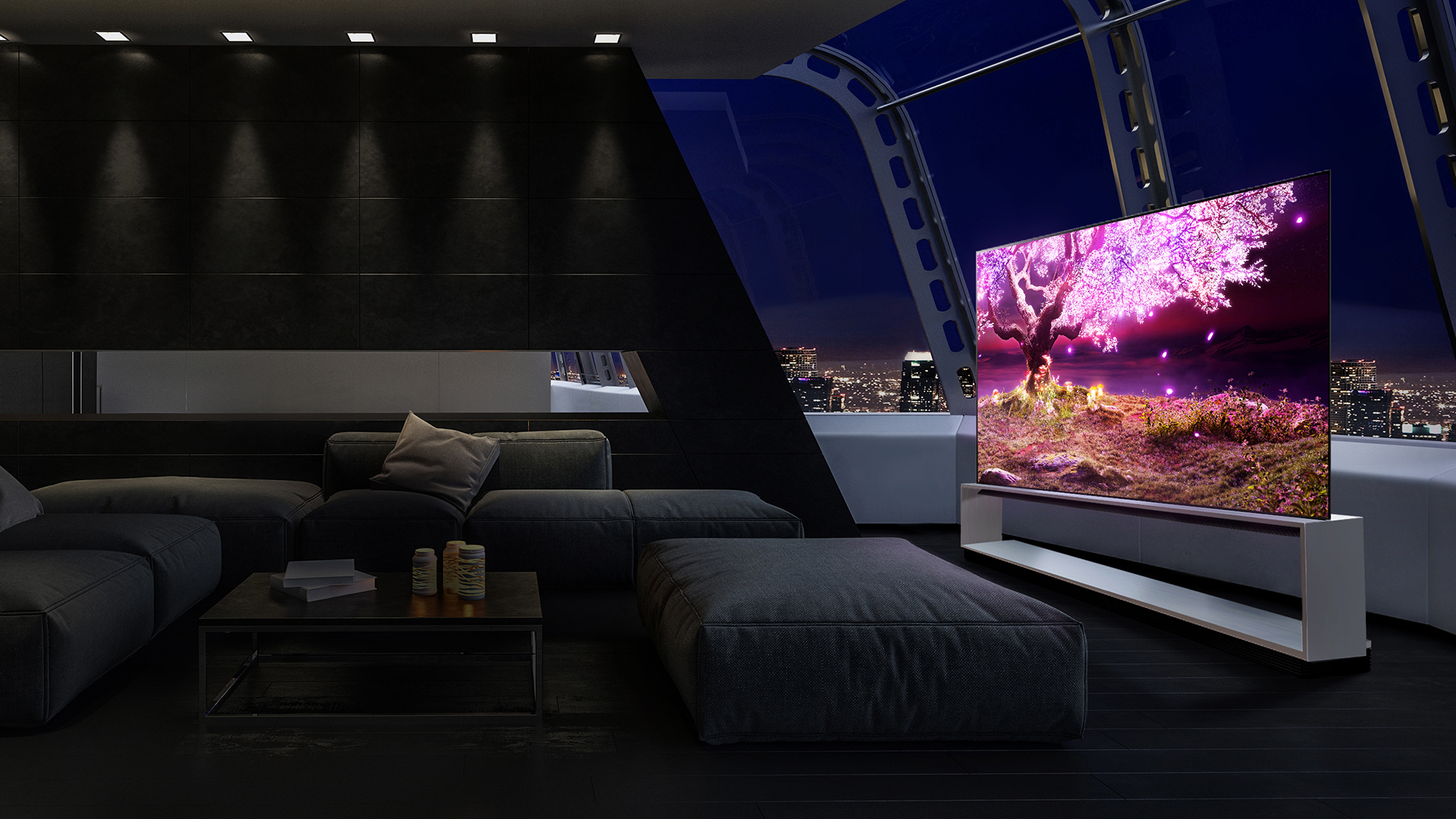LG OLED TVs are about to get even better
LG’s new OLED.EX technology will increase TV brightness

Sign up for breaking news, reviews, opinion, top tech deals, and more.
You are now subscribed
Your newsletter sign-up was successful
LG has announced an upgrade to its OLED TV technology, which the company claims will make its class-leading televisions even better under the name OLED.EX.
OLED technology underpins some of the best TVs on the market, yet it can still be darker than some of its counterparts - but by using a new material in the production of the OLED itself, LG claims it can improve brightness by 30 percent.
This involves using deuterium, a substance that’s an isotope of hydrogen in atomic structure but packs an additional neutron particle (hence the nickname of ‘heavy water’ when water is enriched with deuterium rather than the more common protium version of hydrogen). This compound replaces the more common hydrogen in the creation of OLED TVs, enabling an increase in brightness.
LG is also adding in new algorithms to stabilize the OLED pixels used in its TVs, letting the company's televisions predict and precisely fire the lighting patterns of millions of pixels. Through this new tech, the dark and bright areas of scenes will be more pronounced.
This extra technology will also enhance LG’s design capabilities, meaning that the bezel around the edge of a given display can shrink down to 4mm. The current size (a barely visible 6mm) is hardly overbearing, but the change moves LG’s OLED TVs closer to the ‘zero bezel’ design goal that looks most attractive in a living room.
The new OLED.EX TVs are likely to get a demonstration at CES 2022, although in what capacity is unclear. The technology isn’t set to enter production until April 2022 at the earliest, so it could be used in the forthcoming (but unannounced) C2 OLED TVs that we expect to launch later in the year.
LG hasn’t confirmed whether this refined manufacturing process will add anything to the cost of its OLED sets at the time of writing. TechRadar has contacted the brand to find out.
Sign up for breaking news, reviews, opinion, top tech deals, and more.
What’s deuterium?
Used in fusion reactors, deuterium is a commonly-used isotope that’s derived from sea water. As mentioned, it’s used to create ‘heavy water’ and has been used for years in scientific research as well as consumer electronics.
As the cost of production has reduced, LG says it’s worked out a way to derive deuterium and apply it to its OLED TV creation as a ‘deuterium compound’ - clearly a threshold of cost effectiveness has been breached as the South Korean brand seeks to improve the quality of its OLED displays.
Seen for years as the ultimate in TV display, OLED TVs have been under threat from the likes of QLED displays from Samsung - which led to the latest 8K QLED set dethroning an OLED from the top of our best TV list.
Will this advance in display technology make the difference? It’s hard to tell from a simple release, but rest assured we’ll be pushing this through our rigorous testing procedure to find out as soon as possible
(Editor‘s note - thanks to Ion and Patricia for clarifying that deuterium is an isotope of hydrogen, not a replacement as we stated, and it is not a compound in its normal state - LG has claimed it’s using deuterium as a compound form in the creation of OLED.EX, but we’ve corrected the article accordingly.)

Gareth has been part of the consumer technology world in a career spanning three decades. He started life as a staff writer on the fledgling TechRadar, and has grew with the site (primarily as phones, tablets and wearables editor) until becoming Global Editor in Chief in 2018. Gareth has written over 4,000 articles for TechRadar, has contributed expert insight to a number of other publications, chaired panels on zeitgeist technologies, presented at the Gadget Show Live as well as representing the brand on TV and radio for multiple channels including Sky, BBC, ITV and Al-Jazeera. Passionate about fitness, he can bore anyone rigid about stress management, sleep tracking, heart rate variance as well as bemoaning something about the latest iPhone, Galaxy or OLED TV.